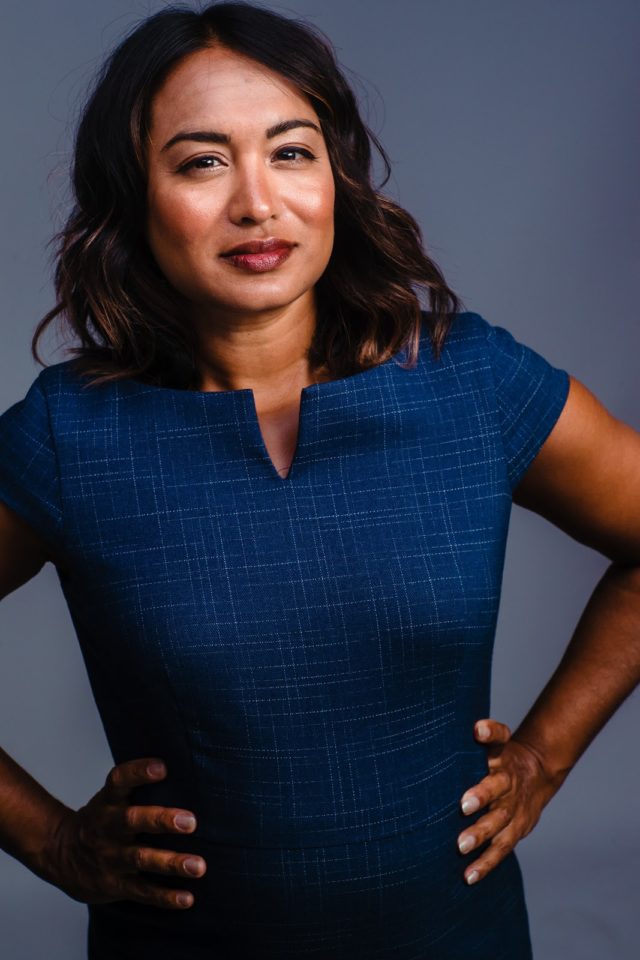
Rachel D’Souza-Siebert
Guest Post by Rachel D’Souza-Siebert, MPPA
Early in my nonprofit career, I learned that the job of a fundraising professional was securing resources to achieve a financial goal that would serve my employer. I had a responsibility to use whatever was at my disposal to build (less than) transformational relationships with donors. My job was to maintain relationships with (mostly white) people with money to fund my organization’s work, annually. Monthly, the board reviewed reports that focused on dollars received, dollars pledged, and dollars raised. Thus, my donor-centric practice of fund development really revolved around my perception of where power and influence existed: the desires and will of the board, leadership of my organization, and the organization’s donors.
I did not think of myself as an actor with power. Perhaps even more telling, I did not even think of those we served as actors with power. My early understanding of my work had nothing to do with confronting history and changing systems. I worked in an institutional silo to advance a local scope of work and reduce harm.
In the last 15 years, I have come to recognize my power and influence to support change. The community-centric fundraising movement calls fundraisers to reclaim and stand in our own power and wield it to the advantage of those who have not and do not benefit from the oppressive structures of colonialism, patriarchy, white supremacy, heteronormativity, and ableism.
So, what does it look like to begin transforming your development practice in the context of community centric fundraising? Here are some starting points I’ve tried out to bring the principles to life:
Reflection + Education
As I’ve shared before, movements don’t happen because of one person, group or organization. It takes all of us, with all our lived experience, to drive change. When we change the rules, we must communicate this and bring our stakeholders along.
We can use a meeting or retreat, led by an outside facilitator, to reflect:
- Is our work informed by and oriented around communities?
- To whom are we accountable?
- Is our organization’s board and leadership willing and ready to resource the transformation of our organization’s fund development efforts?
- Are we willing to engage our closest donors in conversations beyond the “feel-good” lunch-and-learns or cultivation event? Can we trust that uncomfortable conversations and sitting with uncertainty could lead to the greatest success of our organization?
- Are we willing to update and transform our purpose, vision, mission and values to align with what we hear from our mission stakeholders?
- Are we willing to compensate our mission stakeholders for their time and wisdom?
And then, make space to dream with your stakeholders. Ask open ended questions: How can we get to a reality where this organization is no longer needed? What should we be doing differently? How do I want to be a part of this work?
Development Planning
First things first: name what it is that you are doing. If you decide you want to infuse CCF principles into your work, make a case for it. Write down the answers to the following questions: How will this benefit my organization? Our various stakeholders? Where will we try new things or take risks? Where will we move slower? How will we meet our goals? What obstacles or roadblocks should we scenario plan for?
This work will not happen successfully through the actions of one person.
What is your theory of change? Fill in the blanks:
If XXX organization commits to YYY community-centric activities, then we will have an abundance of committed resources to achieve ZZZ.
What are your core values and guiding principles? Do your organization’s values support and amplify the development practice you seek to undertake? How do these values show up in your resource development activities?
Donor Engagement
Transparency + Communication
An open, multi-channel line of communication is vital to building transformative relationships. Ask questions to seek understanding. LISTEN. Reflect on what they’ve shared and integrate their thoughts into your CCF practice.
Advocacy + Storytelling
We must advocate for our values, our organizations, our mission, et cetera, and build these advocacy practices into our communications. Take a look at the advocacy platforms of Independent Sector and The National Council of Nonprofits.
Donor Recognition
It is time to *gasp* shift award from the traditional hierarchical structure of donor and gift recognition.
- Can we celebrate groups of donors collaboratively funding causes and organizations?
- How do we create processes for donor recognition and stewardship outside the traditional white-centric boundaries?
- Where do we step out of the way in our role as “gatekeeper” and offer community and donors opportunities to build their own relationships How do we ensure these opportunities are neither harmful nor tokenizing?
Collaborative Fundraising
It is no longer enough to focus on our organization’s singular mission or vision. We cannot continue to believe the fear-mongering of scarcity mindset. Development professionals must boldly embrace an abundance mindset and a community asset-based approach. This means that as a fundraiser, our duty doesn’t end with a commitment to our employer or even the profession itself – as stewards of an abundance of resources, we must organize resources around shared vision. That doesn’t stop when we hit our organization’s budget goals.
Collaborative fundraising could look like:
- Co-hosting a fundraising event with other nonprofit partners
- Setting aside funds to be re-distributed or re-granted to organizations who are partners in your vision
- Cross-promoting organizations with shared values during opportunities like Giving Days or with your own donors or funding partners
- Saying no or taking a step back from a funding opportunity when it would better serve another effort or organization
As with all trends across our sector, we can theorize about the merits of or debate community-centric fundraising from here to eternity. Or, we can step back and acknowledge that if we continue to do things the way we have always done them, we will never achieve our mission or vision. In my many years in this sector, I have never met a fundraiser who joined this profession while proclaiming “I’m so excited to change nothing about the world.” I believe community-centric fundraising is the first chapter in a whole new conversation about the world-changing fundraisers could and should do.
It’s time to pick a place and dive in. Where will you start?
Rachel is a proud life-long resident of St. Louis, Missouri. Born to parents who immigrated to the U.S.A from India, Rachel has always been passionate about bridging differences and celebrating what’s possible through a mindset of abundance, (un)learning and risk-taking. Her commitment to justice and addressing inequity was cemented through the National Conference on Community & Justice’s Anytown Youth Leadership Institute which Rachel attended when she was just 17. Upon obtaining her master’s degree in Public Policy Administration from the University of Missouri-St. Louis, Rachel left her position in for-profit retail leadership to join the nonprofit sector. In her early nonprofit roles, Rachel developed both a deep commitment to and a critique of fundraising and philanthropy across the St. Louis region.
In 2015, Rachel founded Gladiator Consulting, a boutique consultancy with a holistic approach to nonprofit organizational capacity building. Through Gladiator, Rachel has combined her knowledge of Organizational Culture & Resource Development with her deep personal commitment to centering community, seeking justice and creating belonging for those who have been disenfranchised or targeted by institutions, systems and policy. She is committed to bringing this perspective to all of Gladiator’s clients and client projects have ranged from building resource development strategies with an equity lens to scenario and priority planning to operationalizing equity + accessibility within institutions. Rachel also holds the role of Justice Philanthropy Catalyst with Forward Through Ferguson, the organization formed to carry on the work of the Ferguson Commission. Rachel approaches potential projects with a “What if” mindset and has a hard time saying no once she’s reimagined what’s possible!
In 2020, the St. Louis Business Journal honored Rachel with their Diverse Business Leaders Award. She currently sits on the Association of Fundraising Professionals of Greater St. Louis board, the 501c4 board of LeadMO. and the Community Advisory Board of Nine Network. She is a proud Leadership St. Louis Alum and an ongoing participant in Crossroads’ Understanding & Analyzing Racism Workshop (ABAR). As a member of the Community-Centric Fundraising Global Council Transition Team and Speaker’s Bureau, Rachel enjoys contributing her perspective and sharing her accomplishments with fundraisers and nonprofit professionals across the country.
After surviving a post-partum SCAD heart attack a decade ago, Rachel centers her health and wellbeing across her personal and professional commitments. Rachel and her family make their home in the Shaw neighborhood of St. Louis, Missouri. She loves cooking, snuggling her two children, Peloton, and Instagram.






